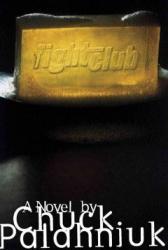
If you like the movie Fight Club, or are just looking for a really good book, this one is awesome. I remember after watching the movie it said that it was based upon this novel. And I had to read it! This story is about a man who's bored with himself and his life. He meets a guy named Tyler Durden, and pretty soon things get out of control. Though there is a "fight club," this story is a lot more than just fighting. And, in my opinion, this book has the best twist ending ever. Chuck Palahniuk is a really good author, and this book is a quick read. Overall, I've read this book multiple times and would highly recommend! I would say that it's not for little kids, as the movie Fight Club is rated R.
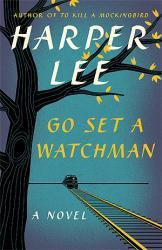
This book was okay. It follows the brilliant "To Kill a Mockingbird". Maybe the shoes were just too big to fill. It's telling that rumor has it Lee didn't want Watchman to be published. The main problem that I had with the book is there is a lot of tedious soliloquizing by Scout. Also, there's a part in the beginning of the book that is straight out of Mockingbird, which isn't surprising as Watchman was written before and became the basis for Mockingbird.
Meh.
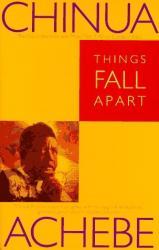
Things Fall Apart is about a Nigerian man, Okonkwo, who watches as his village is destroyed by European missionaries. Once a feared and respected man in his village of Umuofia, Okonkwo is reduced to eventually taking the orders of white men. Okonkwo is a hard and emotionless man who believes that anything that is not masculine is weak and therefore unworthy. When missionaries come to Umuofia, Okonkwo urges his fellow villagers to resist the attempts to diminish their culture and replace their government, but he's met with little support. Eventually, Okonkwo is banned, and when he returns, his village has completely changed.
I liked Things Fall Apart because it's a great book that challenged the idea of African savagery and portrays African culture, specifically Nigerian culture, as complex and intricate, and not the 'uncivilized' society many people view Africans as today. Okonkwo is an interesting character because his unwillingness to adapt to the new change represents an internal struggle many pre-colonized Africans faced in the wake of colonization. The ending is symbolic because it represents the ultimate death of culture as a result of European exploration.
Overall, the novel provides a beautiful insight into another culture often ignored in mainstream media.
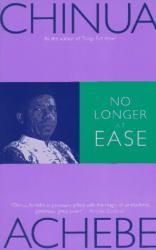
No Longer at Ease is the second installment in the African trilogy series. It is preceded by Things Fall Apart and follows the life of Obi, Okonkwo's grandson. Obi leaves his village in Nigeria to pursue an education in Britain where he meets Clara and falls in love with her. He returns to Nigeria and gets a job in civil service with the help of the board of elders. Obi is conflicted between his African culture and Western lifestyle, and heavy in debt, he takes a bribe.
Just like his grandfather, Obi is strong-minded and stubborn. He intends on marrying Clara although she is an osu, and begins taking bribes when he cannot pay his debts. He questions Nigerian traditions, and often compares Africa to Britain, ultimately positioning him in a place where he finds it nearly impossible to balance both cultures. However stubborn and sometimes reckless Obi is, he's a symbol of generational growth: unlike his grandfather and father, Obi ultimately understood that one culture was not better than the other, and change was imminent. Okonkwo, Nwoye, and Obi symbolize the different industrial stages of Nigeria and the social turmoil that followed, and they show the theme of western versus eastern culture clashes.
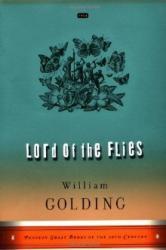
I liked Lord of the Flies for its realism and its detail. The concept of boys stranded on an island was interesting to read, while the realism of the boys’ reactions kept it alive. The detail was fabulous, the interactions well thought out, and the diversity was well done. I loved this book, not just for reading for my writing class, but outside of school as well.
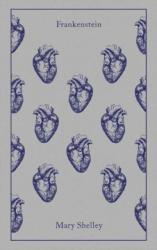
Frankenstein, or, the Modern Prometheus is a great gothic read. Like any other gothic novel, it is dark and mysterious, with elements of horror in it. While it had a rocky start for me, I soon got lost in the characters, with their wants and needs. The detail was amazing, while the wording was, em, very 17th century, but that makes the book no worse. All around, this is a riveting book that will capture your attention immediately.
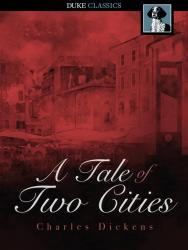
A Tale of Two Cities by Charles Dickens is one of the most popular books of all time, with over 200 million copies sold to date. The novel is set in London and Paris before and during the French Revolution and depicts the plight of the French peasantry demoralized by the French aristocracy, and many unflattering social parallels with life in London during the same period. The main characters are Charles Darnay, a French aristocrat who falls victim to the indiscriminate wrath of the revolution despite his virtuous nature, and Sydney Carton, a British barrister who endeavors to redeem his ill-spent life out of his unrequited love for Darnay's wife, Lucie Manette.
A Tale of Two Cities
One of Charles Dickens's most famous novels, A Tale of Two Cities is also one of his shorter (and better) ones. It begins with an unflattering portrait of an England overrun by highwaymen and courts which are almost as rapacious, and soon shows us a France where things are even worse. Nowhere does Dickens demonstrate his marvelous ability to capture moods and sentiments better than in his depiction of a seething, oppressed populace on the verge of boiling into violence.
And now that the cloud settled on Saint Antoine, which a momentary gleam had driven from his sacred countenance, the darkness of it was heavy—cold, dirt, sickness, ignorance, and want, were the lords in waiting on the saintly presence—nobles of great power all of them; but, most especially the last. Samples of a people that had undergone a terrible grinding and regrinding in the mill, and certainly not in the fabulous mill which ground old people young, shivered at every corner, passed in and out at every doorway, looked from every window, fluttered in every vestige of a garment that the wind shook. The mill which had worked them down, was the mill that grinds young people old; the children had ancient faces and grave voices; and upon them, and upon the grown faces, and ploughed into every furrow of age and coming up afresh, was the sigh, Hunger. It was prevalent everywhere. Hunger was pushed out of the tall houses, in the wretched clothing that hung upon poles and lines; Hunger was patched into them with straw and rag and wood and paper; Hunger was repeated in every fragment of the small modicum of firewood that the man sawed off; Hunger stared down from the smokeless chimneys, and started up from the filthy street that had no offal, among its refuse, of anything to eat. Hunger was the inscription on the baker's shelves, written in every small loaf of his scanty stock of bad bread; at the sausage-shop, in every dead-dog preparation that was offered for sale. Hunger rattled its dry bones among the roasting chestnuts in the turned cylinder; Hunger was shred into atomics in every farthing porringer of husky chips of potato, fried with some reluctant drops of oil.
After spending eighteen years in the Bastille, a French country physician is released and allowed to emigrate to England, where he is reunited with the daughter he has never met. Lucie Manette, typical of Dickens women, is a pure-hearted angel who is instantly devoted to him despite never having known him. Through various plot twists, Lucie marries Charles Darnay, who turns out to be the expatriate nephew of the Marquis who had Doctor Manette imprisoned, in a backstory eventually revealed to us with an even more improbable plot twist.
Once the Revolution begins, Charles Darnay is lured back to Paris to save the life of one of his former servants. Naturally, he is promptly imprisoned and put on trial. His family, including Lucie and their daughter, as well as pretty much the entire cast of the novel thus far, follows him, and are all put in peril of meeting Lady Guillotine. It was the popular theme for jests; it was the best cure for headache, it infallibly prevented the hair from turning grey, it imparted a peculiar delicacy to the complexion, it was the National Razor which shaved close: who kissed La Guillotine, looked through the little window and sneezed into the sack. It was the sign of the regeneration of the human race. It superseded the Cross. Models of it were worn on breasts from which the Cross was discarded, and it was bowed down to and believed in where the Cross was denied.
Dickens's stories are full of improbable plot twists. Characters who met once will always meet again. The coincidences in A Tale of Two Cities almost defy the reader's suspension of disbelief -- but it's Dickens, and Dickens can be forgiven a lot. He shows the pitiless brutality of the French aristocracy and the suffering of the people until your sympathies are entirely with them, and when the tumbrils begin rolling through the streets you can't but think that the aristos had it coming and then some. But then the Terror is unleashed -- and personified in the form of Madame Defarge -- and the oppressed turn just as brutal and pitiless. This is the only way Dickens could have brought our sympathies back to the main characters, who after all, have lived pretty safe and privileged existences even if they weren't the evil "Monseigneur" who ran children beneath the wheels of his carriage. And let's face it, Charles Darnay really picks up the Idiot Ball when he goes back to Paris.
I doubt there are many people who don't know how the novel ends, but while it's a story of redemption and self-sacrifice, I was not nearly as touched by Sydney Carton's heroism as I was by the Madame Defarge vs. Miss Pross
smackdown, which I think is one of Dickens's best climaxes ever, and which none of the film adaptations (below) did justice:
"You might, from your appearance, be the wife of Lucifer," said Miss Pross, in her breathing. "Nevertheless, you shall not get the better of me. I am an Englishwoman."
Madame Defarge looked at her scornfully, but still with something of Miss Pross's own perception that they two were at bay. She saw a tight, hard, wiry woman before her, as Mr. Lorry had seen in the same figure a woman with a strong hand, in the years gone by. She knew full well that Miss Pross was the family's devoted friend; Miss Pross knew full well that Madame Defarge was the family's malevolent enemy.
"On my way yonder," said Madame Defarge, with a slight movement of her hand towards the fatal spot, "where they reserve my chair and my knitting for me, I am come to make my compliments to her in passing. I wish to see her."
"I know that your intentions are evil," said Miss Pross, "and you may depend upon it, I'll hold my own against them."
Each spoke in her own language; neither understood the other's words; both were very watchful, and intent to deduce from look and manner, what the unintelligible words meant.
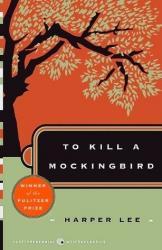
The amount of description in To Kill a Mockingbird by Harper Lee is
amazing. Like, Sherlock Holmes good. The characters are well mapped out, the
interactions felt thought through, and the relationships are believable. I
personally didn’t get all the detail the first read through, just from
enjoying the characters too much. The history is realistic, considering the
time period and how poorly the blacks were treated. All things considered,
this is an engaging read with some actual history.
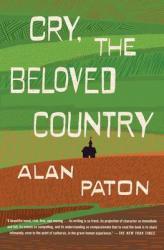
Cry, the beloved country
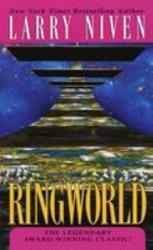
It can be difficult to judge a book, especially one as critically acclaimed as Ringworld, with 50 years of scientific and societal progress between when it was written and today. On the one hand, there are many scientific concepts explored in this book that we almost take for granted in modern sci-fi. On the other hand, the stink of 1970s misogyny doesn’t age very well, and this book is a prime example. Even today, sci-fi authors are still trying to dig out from the sexist tropes that books like this perpetuated throughout the genre. It’s a complicated, uphill battle, but we’re trying to be better than this.
For 1970, I do have to admit that the science presented here is relatively revolutionary. Unfortunately, the descriptions were occasionally a bit dry and felt more like reading a textbook than a sci-fi adventure. I could appreciate how Niven described the indescribable scale of something as massive as the Ringworld. Additionally, the alien races were well-rounded and had complex physiologies and backstories that made the group dynamic entertaining to read. However, the only thing well-rounded about the women in this book were their bodies.
Aside from the considerable age difference between the two romantic leads being an acceptance of pedophilia, it’s clear that Niven only thought of women as objects. This is disappointing because the story could have been more interesting if the female characters had any agency other than being driven by pleasure or luck. I have to recognize that this book is still a snapshot of its temporal circumstances, but that doesn’t necessarily excuse it in today’s society. Acknowledging that it’s from the 1970s, modern works should be more aware of these flaws when using such a pivotal science fiction book as a base for today’s books.
Some great science with not-so-great misogyny, I give Ringworld 3.0 stars out of 5.
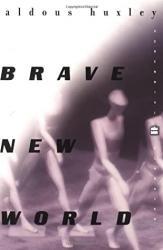
Brave New World, written by Aldous Huxley, is a personal interpretation of society’s attitude towards technology. It takes place in a future, either dystopian or utopian, where technology reigns supreme, and humans are created in a lab. It offers commentary on where humanity’s values are placed, and where they should be placed. The characters have to choose whether or not conformity is the best option, and whether numbing the pain is better than understanding the suffering. Written in the 1930s, Huxley has a surprisingly modern style and understanding, and knowing that he was unsure of the future makes it an even more exciting book.
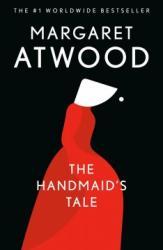
This novel followes the life of "Offred" who is part of the first wave of women during the Gilead regime. "Offred", whose real name is never revealed in the book, is a Handmaid whose sole responsiblity is to have children to sustain the rapidly declining Caucasion population. She tries to accept her life as a Handmaid, but is haunted by memories of the time before Gilead when she had a family and was free from the oppressive society she currently lives in.
I really liked how Atwood discloses minimal details about "Offred" which makes it clear that what is happening to her can happen to any woman. The novel is set in a utopian society, and it's very interesting to read the rationale behind the establishment of the Gilead regime and how sexism and anti-feminist retoric is a constantly looming problem in society. The novel is told through "Offred's" perspective, and personally, I felt she was a bland character, but her story itself was interesting. The book hangs off on a cliffhanger, and I'm definitely going to read the sequel and watch the Hulu adaption after!
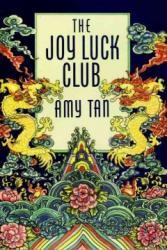
The Joy Luck highlights mother-daughter relationships in the midst of generational conflicts. The Joy Luck daughters, Jing-mei, Waverly, Rose, and Lena, are first generation Chinese-Americans living in San Francisco during the 1980's. They feel their mothers are overbearing and do not understand their desire for independence. Ironically, their mothers feel they are losing their Chinese identity and became Americanized.
I love this book! The book is structured like the traditional Chinese game mahjong, and each of the daughters and mother's stories are complex and thought-provoking. Although it's set back in the 80's, a lot of its themes regarding mother-daughter relationships and intergenerational conflicts are relevant amongst first-generation immigrants and families today. Among the eight main characters, Jing-mei is my favorite, because she's really the only daughter that fully embraces her hyphenated identity.
This book is different because it tells the story of eight women who are so similar yet so different at the same time. I really recommend this to anyone looking for a female dominated novel!
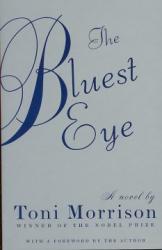
The Bluest Eye is about a young African-American girl named Pecola living in 1940's Ohio. Pecola lives with her brother and abusive parents who constantly tell her she is ugly because of her dark skin and kinky hair. On top of that, the children at her school bully her for the fact that her father is an alcoholic. All her life, Pecola has wanted blue eyes to feel pretty. Her only friends, Freida and Claudia try to defend her against the colorism in their community, but Pecola is unable to embrace her features and becomes obsessive over her desire for blue eyes.
One of the reasons I read this book is because of Morrison's writing style and her thematic elements. The book is very intellectually stimulating and gave me better insight into colorism and how it is still largely prevalent today in the African-American community. I really liked how Morrison used a young girl as a main character to show how these feelings of low-esteem and poor body image are started at a young age, and how the people around us influence our thoughts and feelings.
There are a lot of complex characters and you get to hear each of their stories about why they're the way they are. Claudia is my favorite character because she represents women and girls who challenge our ideas of beauty. The ending was sad, but it really brought light to how damaging our obsession with beauty is.
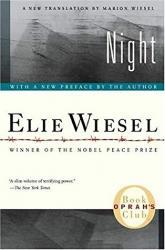
Night by Elie Wiesel is a powerfully graphic novel that tells the story of a Hungarian Jew's experiences in various concentration camps within Nazi Germany during World War II. I really enjoyed this book. It was very well written and hard to put down. This book not only tells of Wiesel's experiences in concentration camps, but provides insight into psychological and philosophical ideas that make it even more interesting. Wiesel was just a teen when he and his family were sent away. He and his father were separated from his mother and sister and underwent an immense amount of trauma that was life altering for both of them. I'd recommend this book to those interested in World War II. The book is a quick and easy read with deep, profound content.
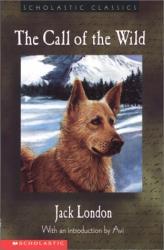
I was required to read The Call of the Wild for my Literature class. The story is about a lovable St. Bernard dog named Buck. At the start of the story, Buck lives in the cushy and comfy house of Judge Miller, but eventually winds up in the wild North of the Yukon. Serving as a sled dog, Buck passes through many owners, good and bad, and learns to answer the Call of the Wild. Overall, it was a pretty good book, but I would only give it Three Star review for these reasons:
1: As it is a classic, the book was written with an older style of English, which can be a little hard to understand. Older English can also take away some of the gravity in pressing situations.
2: There wasn’t quite as much action as I would have liked.
3: I enjoyed the book, but some of the action scenes may have been ruined by the Older English, although the Older English gives the reader a taste of how people communicated in the past. However, the characters, plot, and setting were developed well, so overall, Call of the Wild is a classic, and a quality work of literature, which still can be enjoyed today.
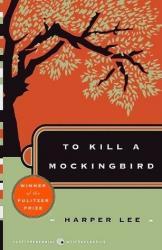
"To Kill a Mockingbird" is an essential piece of literature. It tells a story that highlights the darkness of America's past, through the innocent eyes of a young girl. With this type of narrator, who almost only understands pure truth, joy, and rage, it is possible for readers to feel what she feels, and be brought into her small world (Alabama during the Great Depression) with simple, yet beautiful writing. The story itself is touching, and focuses on themes of family, racism, and solidarity. Aside from its essentiality in explaining America's history, it also can be read as a coming of age story, where the characters begin to see the harsh reality of the world in which they grew up, and in which they created lasting memories and relationships. It will make you laugh, cry, and feel.
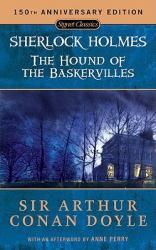
The Hound of the Baskervilles is another outstanding Sherlock Holmes novel. After wealthy landowner Sir Charles Baskerville is found dead, Sherlock Holmes and Dr. Watson must investigate the rumors of an otherworldly hound with glowing eyes and jaw. The Hound of the Baskervilles once again showcases Sherlock Holmes brilliant deductive capabilities and the mental chess-match he plays with villains. However, this novel also shows Dr. Watson's wit and all that he has learned throughout his years with Holmes.
This gripping adventure will keep you on your toes and leave you guessing until the very end. I highly recommend this book for any fan of classic mystery novels.
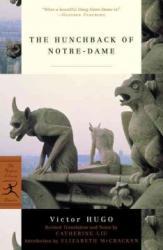
The Hunchback of Notre Dame is about four men who are captivated by a mysterious gypsy dancer. The story begins on a holiday where a play is going on until everyone becomes distracted by the gypsy girl dancing in the square. This is where we meet Esmeralda the gypsy and Gringore the playwright. Many things happen until Esmeralda ends up meeting Pheobus, a soldier, who is very egocentric, when he saves her from the deformed bell ringer - Quasimodo - and a priest named Claude Frollo. Esmeralda is soon accused of witchcraft and is sentenced to be hanged. Fortunately, she is able to find shelter in Notre Dame before that can happen. Many want to kill her, but some want to save her.
I had to read this book for school, and my English teacher recommended it. And the first chapter was not very interesting so I became skeptical, but at the end, I thought the book was really good. There are some parts where the author goes into detail about a location to better help set the scene, and this is where I struggled to focus on the book, but you should push forward because the story line is worth it. The Disney movie did not do this book justice and there is some adult-themed content in the book so I would not recommend this book to middle-schoolers or younger. I do think that sooner or later, everyone should at least give this book a try because it really made me think.
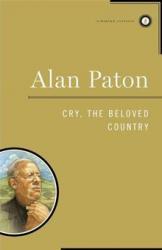
Cry, the Beloved Country is a very good novel. It depicts the lives of Reverend Stephen Kumalo and white landowner, James Jarvis, during a time of turbulence in their lives. All of the characters in the novel are extremely well written and the character development is superb. The conflict in the novel feels very realistic and thrills the reader. The moral decisions and emotions faced by the two protagonists feel very weighty and captivate the reader. Overall, the book is a great novel that I would recommend to anyone.


